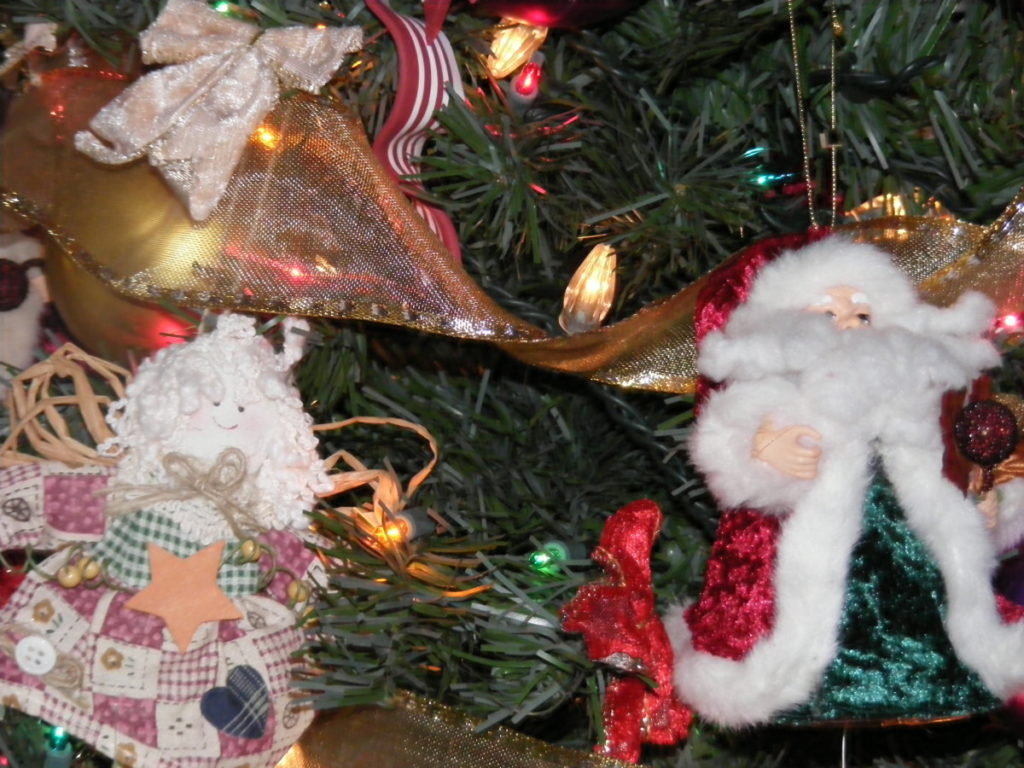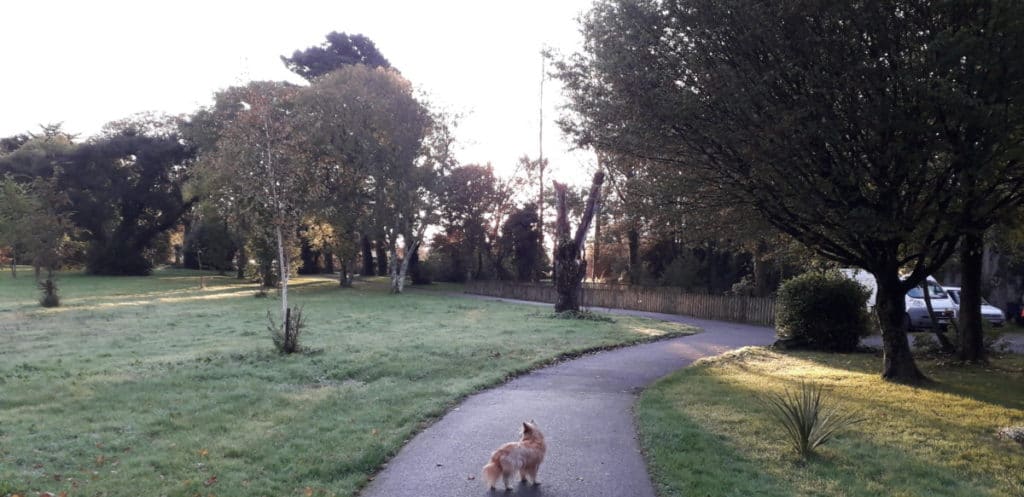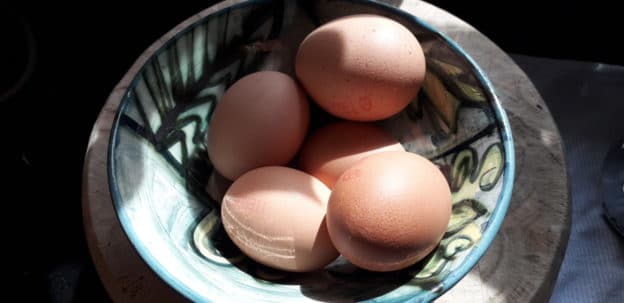
Christmas cards filling the post-box on the back of the oak, hall door and spilling out onto the brown carpet below on busy days. Fruit cake ready for decorating on top of the piano, letters for Santa sent and ham, spiced beef and turkey on order from Geasley’ butchers. Signs in our house that Christmas was on its way in the 1970s. The buying of the tree from O’Mahoney’s was another one, though it wouldn’t go up till the week before Christmas, filling the front room with the scent of pine, and those age-old decorations were our colours of Christmas.
My father bringing the Christmas RTE Guide home from Cork, was a sure sign that Christmas was on its way. Two weeks of Christmas TV all laid out in a colourful magazine and how they managed to fit so much into a publication for listing a couple of TV channels and radio stations was an editorial feat. There wasn’t any looking at it before dinner, though later in the front room you could count the number of pages there were to Christmas and even see ‘Christmas Eve’ spelt out in big letters. We didn’t have an Advent Calendar in our house, we had the RTE Guide. I never went beyond Christmas Day; I didn’t want to look at a future where Christmas Day was in the past.
Before the RTE Guide would make its way down from Cork in my father’s briefcase the Holly Bough would have come to Rushbrooke Terrace. Dad would get it about a week earlier, and I’d scour it for stories and photos of Cobh. Christmas cards would be arriving by then, stuffing the post box each day while the rush was on: Aunt Joan in Wales, Sister Eileen in Mill Hill, London, Uncle Dick in Dublin and Uncle Billy in Athlone, godparents, cousins and family friends all thinking of us. The cards would go on the mantlepiece, in the Christmas tree and on string fixed across alcoves and over the fireplace. If there were an overflow, they’d go in the kitchen or the room we called the tenement.
As soon as it got dark on Christmas Eve I’d light the tall, red candle in the window on the stairs. It was the privilege of the youngest. Before going to bed, I’d put out the sandwich, slice of cake and a bottle of stout for Santa. The excitement was high, but you had to sleep, else Santa wouldn’t come. We’d be up early Christmas morning to see what was in our stockings, no more than old pillowslips, at the end of the bed. Santa was always good, we usually didn’t get exactly what we wanted, but the great man did seem to know what we’d like. I’d get a big present and a few smaller ones, along with the Dandy and the Shoot annuals; Dandy went up to Victor when I was about nine or ten.
Later when going downstairs, you’d see the plate covered with crumbs and the empty bottle of Guinness with the stained glass beside it. Dad would come down, and we’d get ready for the walk to 8:30am Mass in Norwood Church. There would be few cars on the road those Christmas mornings and the many families walking to Mass would string out on the road to chat. In Norwood we’d sing our carols, say our prayers and our tummies would rumble. Outside afterwards we’d greet friends, telling what we got before rushing home for breakfast. You’d be starving after being up since seven, and there was no eating before Mass. There’d be no eating after the cooked breakfast neither, as you had to keep the appetite for the dinner at 3pm.
After breakfast we’d open the presents under the tree, the ones from each other and close relatives. More fun, more delight and more playing and even reading. The excitement would level out, and, after a visit from Aunty Una and family, Ella and Jane would take over the kitchen, creating the once-a-year feast we all loved so much. The oven would be roasting meat, knives would be chopping veg and pots would be boiling potatoes and ham. The extractor would be on fulltime in the window, and my young nose would pick up more scents of Christmas.
Dad and I would set the table, first moving it in from the tenement, where it lived in the bay window for the other 364 days of the year. It was an extendable, square, pine table on four stout legs, slowly being eaten away by woodworm, as was most of the furniture in that rarely used room. We would take the top off, and the stress levels would begin to rise as we’d edge the heavy base, on its side, out the door and into the sitting room. All you could hear for a while would be ‘careful, careful, mind the door, mind the paint, mind the furniture’. Dad feared that the top wouldn’t fit again properly and he’d spend the time before dinner adjusting it or grimacing at any trembles. Once the table was in place, we’d dress it from the old oak sideboard. Out would come the full set of fine bone china, the embroidered tablecloth and matching napkins Uncle Dick brought back from his time in Cyprus, the gravy and sauce boats, the two-sided vegetable bowls and the good wine glasses.
With the table laid, the food ready and the TV off, the spread would come in from the kitchen. Turkey, ham, spiced beef, roast potatoes, mashed spuds, potato croquettes, stuffing, gravy, bread sauce, carrots, brussels sprouts, sliced beans and cranberry sauce. All served in the fine china, including gravy boat and lidded bowls, and placed along the embroidered tablecloth. The fire was going from mid-morning, the room would be roasting, and we’d sit down to the best dinner of the year. We had lemonade and Dad a glass of wine, with Ella and Jane graduating to Babycham as they came of age. After dinner, the plates and food were cleared and desserts put on the side-table where usually the papers lay during the rest of the year: the Christmas pudding, the trifle and the strawberry mousse, each with their specific serving dish, along with the whipped cream. More eating. Dad always had a portion of all three in his bowl, while we stuck to the one. The crackers would have been pulled by then, with the bad jokes told, and we would take a few photographs of the family with paper hats sliding off our heads
I wonder where those photos are now? Maybe Jane has some in the old albums? My memories I keep stored in the part of my brain labelled ‘Christmas in Cobh.’ Thankfully Ella gave the sideboard, tablecloth and fine bone china a home when Dad sold the house, so some of the tradition lives on in Cobh. I still love that innocent happiness of Christmas as a child, which I now try to recreate for Ruby and Freddie every year. Hopefully Lisa and I succeed in adding to their memory banks. The scents are the same, the fun and tastes of Christmas time too but it still goes too fast, much too fast.


